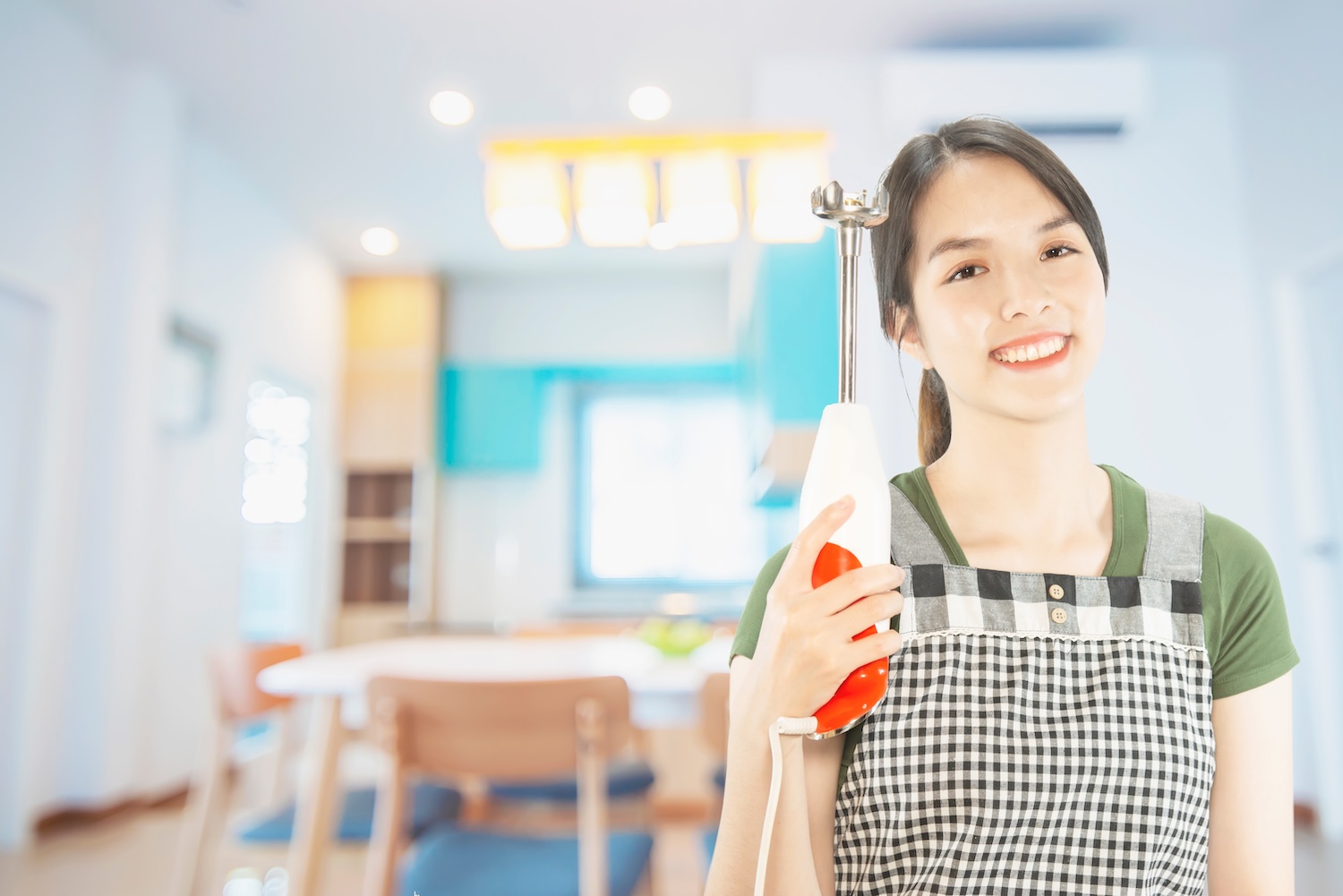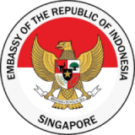The role of domestic helper in Singapore is changing fast. What worked five years ago won’t meet today’s household demands, much less tomorrow’s. Modern domestic helpers must navigate smart homes, provide specialized elderly care, and support children’s emotional growth all while adapting to Singapore’s increasingly diverse family needs.
This isn’t just about following trends, it’s about preparing for Singapore’s household in 2025 and years to come. Households in Singapore need partners who understand smart technology, provide compassionate care, and support family dynamics in meaningful ways with the help of a forward thinking modern maid agency such as Hire A Maid who specialises in Indonesian and Myanmar helpers. Find out more how Hire A Maid shapes the future of maid agencies in Singapore.
For domestic helpers and the families who employ them, understanding these evolving skill requirements isn’t optional. It’s essential for creating successful, long-term working relationships that benefit everyone involved. At Hire A Maid, a modern maid agency in Singapore, we bridge this gap by carefully matching families with trained helpers who possess not only the right technical skills but also the adaptability and interpersonal qualities needed in today’s households.
How A Tech-Savvy Domestic Helper Supports Smart Home
Visit any modern Singaporean home and you’ll spot at least one smart device. Robot vacuums navigate furniture automatically, voice assistants control lighting and music, kitchen appliances program themselves remotely. In 2025 and beyond, these won’t be luxury items and will become household basics.
Helpers who understand these devices have a significant advantage. Instead of viewing technology as a threat to their role, savvy helpers see it as a tool that makes their work more efficient and effective. Helpers who can program the robot vacuum to clean specific rooms, adjust smart thermostats for optimal comfort, and troubleshoot basic connectivity issues become invaluable to tech-forward homes.
The learning curve isn’t as steep as you might think. Most smart home devices are designed for user-friendly operation. What matters more is the willingness to engage with new technology rather than avoid it. Helpers who embrace these tools often find their daily tasks become more manageable, freeing up time for higher-value activities like personalized care and household organization.
Training in basic troubleshooting proves particularly valuable. When the smart doorbell stops working or the automated coffee maker needs resetting, a maid who can resolve simple technical issues saves families time and frustration. This technical confidence translates into overall job security and career advancement opportunities.
Smart home familiarity also demonstrates adaptability, a quality that modern families highly value. Domestic helpers who stay current with household technology trends show they’re committed to growing with their employer’s needs rather than remaining static in their approach.
How Domestic Helpers Support Elderly Care And Companionship
Singapore’s aging population creates massive demand for domestic helpers skilled in eldercare. By 2025, nearly one in four Singaporeans will be over 65. Many families will need domestic helpers in Singapore who offer far more than basic housekeeping.
Mobility assistance requires specific knowledge and techniques. Helping an elderly person move safely from bed to chair, navigate stairs, or manage personal hygiene needs specialized training that goes beyond general caregiving. Understanding proper body mechanics protects both the helper and the elderly person from injury while maintaining dignity and comfort.
Medication management becomes crucial when multiple family members have complex health needs. Domestic helpers who understand medication schedules, can recognize side effects, and know when to alert family members or medical professionals provide invaluable peace of mind. This doesn’t mean making medical decisions, but rather serving as an extra set of eyes and hands for families managing multiple health conditions.
Companionship often proves as important as physical care. Elderly individuals may spend long hours alone while family members work, making the helper’s emotional presence vital for mental health and overall well-being. Helpers who can engage in meaningful conversation, assist with hobbies or interests, and provide patient, respectful interaction become cherished family members rather than just employees.
Basic first aid knowledge transforms from nice-to-have to essential when caring for elderly individuals. Understanding how to respond to falls, recognize signs of medical emergencies, and provide immediate care while waiting for professional help can literally save lives.
The emotional intelligence required for elder care differs from childcare but proves equally demanding. Maids must balance respect for independence with necessary assistance, maintain patience during difficult moments, and provide comfort during health challenges all while preserving the elderly person’s dignity and autonomy.
How Domestic Helpers Support Childcare With Emotional Intelligence
Today’s parents expect more than supervision, they want developmental partners. They seek caregivers who understand emotional needs, support learning goals, and create nurturing environments that build confidence and growth.
Developmental awareness helps helpers provide age-appropriate activities and recognize important milestones. A helper in Singapore who understands that a three-year-old’s tantrums are normal development rather than bad behavior can respond with patience and appropriate guidance. This knowledge benefits both the child and reduces family stress.
Safety knowledge extends beyond basic childproofing to include understanding child psychology and behavior patterns. Helpers who recognize when a child is testing boundaries versus experiencing genuine distress can respond appropriately, maintaining safety while supporting healthy development.
Emotional nurturing requires genuine empathy and communication skills. Children often confide in their caregivers about concerns they might not share with parents. Helpers who can provide comfort, guidance, and appropriate support while maintaining healthy boundaries become trusted figures in children’s lives.
Educational support doesn’t require teaching credentials, but helpers who can assist with homework, encourage reading, and provide enriching activities add significant value for families. Understanding different learning styles and having patience with academic struggles makes helpers valuable members of the child’s support network.
Communication with parents about their child’s day becomes increasingly important as families seek detailed updates about developmental progress, behavioral observations, and daily activities. Domestic helpers who can provide thoughtful, detailed feedback help parents stay connected with their children’s experiences even during busy work schedules.
How Domestic Helpers Support Cooking For Diverse Diets And Allergies
Singapore’s multicultural landscape means domestic helpers often serve families with diverse dietary needs, religious restrictions, and health considerations. The ability to prepare meals accommodating various requirements while maintaining nutrition and taste becomes invaluable.
Food allergy management requires careful attention to ingredients, cross-contamination prevention, and understanding of severity levels. For example, your Myanmar domestic helper who can safely prepare meals for a family where one child has nut allergies while another requires gluten-free options demonstrates expertise that provides immense peace of mind for parents.
Healthy meal preparation goes beyond following recipes to understanding nutritional principles. Helpers who can create balanced meals that meet different family members’ health goals whether that’s supporting an elderly family member’s heart-healthy diet or ensuring growing children receive adequate nutrition provide value that extends far beyond basic cooking.
Cultural cuisine knowledge allows helpers to prepare authentic dishes that honor different family traditions while adapting recipes for dietary restrictions or health needs. A helper who can prepare traditional Chinese medicine soups, Indian vegetarian dishes, and Western comfort foods gives families flexibility in their meal planning.
Meal planning and prep skills help busy families maintain healthy eating habits despite demanding schedules. A domestic helper who can organize weekly menus, prepare ingredients in advance, and coordinate multiple dietary needs streamline household management significantly.
Understanding kitchen safety, proper food storage, and hygiene practices becomes even more critical when managing multiple dietary restrictions. Helpers who maintain high standards in food preparation protect family health while building trust and confidence.
How Communication Skills And Basic English Literacy Support Households
Clear communication builds the foundation of successful employment. As families diversify and household needs grow complex, understanding instructions, asking smart questions, and providing clear updates becomes critical.
Basic English literacy enables maids to read medication labels, follow written instructions, and understand safety warnings. This skill proves particularly important in emergency situations where clear communication can be critical for family safety.
Household organization often requires written communication from shopping lists to schedule coordination. Your Indonesian domestic helper who can maintain household logs, track important information, and communicate effectively with various family members help maintain smooth operations.
Professional communication includes understanding appropriate boundaries, maintaining confidentiality, and representing the family respectfully in various situations. Whether interacting with neighbors, service providers, or school personnel, some maids often serve as family representatives.
Conflict resolution skills help address minor household issues before they become major problems. Domestic helpers who can communicate concerns respectfully, understand different perspectives, and work toward solutions contribute to harmonious household environments.
How Helpers’ Adaptability And Problem-Solving Skills Support Singaporean Families
Urban households operate at lightning speed with schedules changing constantly. Maids who adapt quickly, think independently, and stay calm under pressure become irreplaceable.
Initiative-taking separates good domestic helpers from exceptional ones. Rather than waiting for specific instructions for every situation, top helpers anticipate needs, identify potential problems, and take appropriate action within their scope of responsibility.
Flexibility in scheduling accommodates the reality of modern family life such as overtime work, travel schedules, social commitments, and unexpected events. Helpers who can adjust their routines while maintaining household standards provide stability during chaotic periods.
Time management becomes crucial when balancing multiple responsibilities across different family members’ needs. Helpers who can prioritize tasks effectively, manage competing demands, and maintain quality standards under time pressure provide tremendous value.
How Our Maid Agency Is Preparing Domestic Helpers For The Future
At Hire A Maid, we recognize that tomorrow’s domestic helpers need comprehensive preparation for evolving household demands. Our training programs address these emerging skill requirements through targeted, practical education that prepares both our Indonesian helpers and Myanmar helpers for real-world success.
Our maid agency’s pre-deployment training includes hands-on experience with common smart home devices, basic eldercare techniques, and child development principles. Rather than theoretical learning, we focus on practical skills that helpers can immediately apply in their work environments.
Hire A Maid’s curated matching considers both technical skills and personality fit. We assess helpers’ strengths and growth areas alongside families’ specific needs, creating partnerships that benefit both parties from the beginning.
Our ongoing support includes mediation services, additional training opportunities, and career development guidance. We maintain relationships with both helpers and families to ensure long-term success and address challenges proactively.
Our overseas training centers teach English language that focus on practical communication skills needed in household settings. Rather than academic English, we emphasize vocabulary and expressions that help helpers perform their duties effectively and communicate clearly with family members.
Professional development opportunities help ambitious helpers advance their careers through specialized training in areas like elder care, child development, or household management. Our maid agency supports helpers who want to grow professionally while serving families better.
Conclusion
The domestic helper role has evolved from basic housekeeping to comprehensive household support requiring diverse expertise. Households who recognize this shift and prioritize skilled hiring create better outcomes for everyone.
Investing in skilled helpers isn’t just about immediate convenience, it’s about building sustainable partnerships that grow stronger over time. Maids who possess these future-ready skills provide value that extends far beyond basic household tasks, becoming trusted partners in family life.
At Hire A Maid, we’re committed to preparing both helpers and families for this evolving landscape. By investing in comprehensive training, ongoing support, and thoughtful matching, we create partnerships that succeed in 2025 and beyond.
Ready To Find A Helper Equipped For Tomorrow’s Demands?
Contact us today to discover how our skilled, well-trained Myanmar maid and Indonesian maid can elevate your family life with the professional expertise modern households need.






